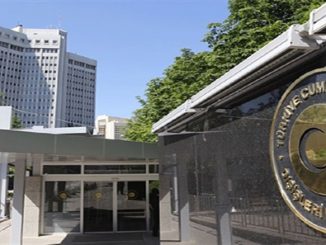
Ethiopia’s Prime Minister, Abiy Ahmed, arrived in Sudan Tuesday on a one-day visit aimed at strengthening relations between the two countries, the official Sudanese News Agency (SUNA) reported.
SUNA said Ahmed was received at Khartoum airport by his Sudanese counterpart, Abdullah Hamdok.
The Ethiopian News Agency said that Ahmed’s visit to Sudan comes at a time when the tripartite negotiations on Ethiopia’s Grand Renaissance Dam are continuing under the auspices of the African Union (AU).
Ahmed’s visit also coincides with the visit of US Secretary of State, Mike Pompeo, to Khartoum, the agency said, without explaining if the two would meet.
Less than two weeks ago, a large Egyptian delegation headed by Prime Minister Mostafa Madbouly visited Sudan and agreed on an expanded plan for cooperation and refused to allow Ethiopia’s dam to prejudice the rights of both countries.
Meanwhile, security tensions have escalated in the Al-Fashaqa border area between Sudan and Ethiopia.
Sudanese media reports said Ethiopian militias invaded the Sudanese territory, which resulted in the killing and wounding of Sudanese soldiers.
Ethiopia is building a $5 billion dam near the border with Sudan it says will provide the country with much-needed electricity and economic regeneration. Egypt believes it will restrict its access to Nile waters.
Egypt is almost entirely dependent on Nile water, receiving around 55.5 million cubic meters a year from the river, and believes that filling the dam will affect the water it needs for drinking, agriculture and electricity.
Cairo wants Ethiopia to guarantee Egypt will receive 40 billion cubic meters or more of water from the Nile. Ethiopian Irrigation Minister Seleshi Bekele said Egypt has abandoned this demand, but Egypt insists it hasn’t and issued a statement to this effect.
There is also an unresolved issue over how fast the dam will be filled, with Egypt fearing if it is filled too quickly, it could affect the electricity generated by the Aswan High Dam.



